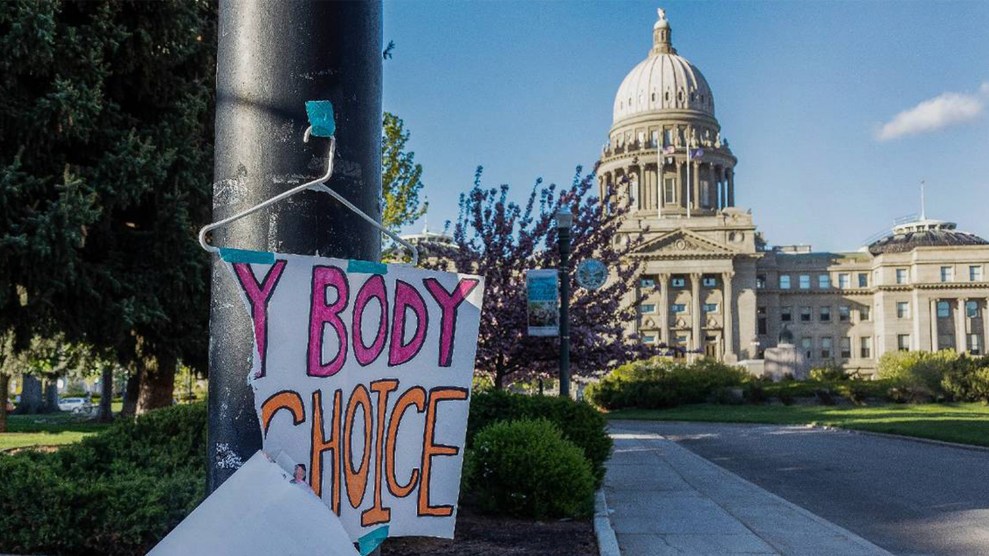
Richard Ellis/ZUMA
This weekend marks the official start of summer, and it’s shaping up to be a scorcher. The extreme heat that’s afflicted much of the eastern United States this week is set to continue, with temperatures hitting the mid to upper 90s in the Midwest and the Mid Atlantic regions. The National Weather Service reports that temperatures in the Midwest are “anomalous and dangerous for early Summer.” In the Southeast, temperatures could exceed 110 degrees. Making matters worse, overnight temps are expected to stay high, allowing little relief to those without access to air conditioning.
According to climate scientists at World Weather Attribution, we’ve largely done this to ourselves. Their recent report found that in the year 2000, this level of heat was only expected to occur once in a lifetime for those living in North and Central America. Now, “on average a person will experience it 5 or 6 times in their lifetime.” That uptick is driven by “fossil fuel driven warming,” which has made the heatwaves we’re experiencing in this region 35 times more likely to occur.
Black people in the US are 40 percent more likely than other racial groups to live in areas “with the highest projected increases in extreme temperature related deaths.”
“As long as humans fill the atmosphere with fossil fuel emissions, the heat will only get worse,” stated one of the report’s authors, Izidine Pinto, a researcher at the Royal Netherlands Meteorological Institute, adding that “vulnerable people will continue to die.”
The heat isn’t just uncomfortable—it’s extremely dangerous. According to Dr. Catharina Giudice, a FXB Climate Change & Human Health Fellow at Harvard, “extreme heat increases the rates of cardiovascular, respiratory, and renal diseases and threatens the stability of our electrical grid, impacting communities and healthcare facilities.” Socially vulnerable people feel those impacts the most. A 2021 report from the Environmental Protection Agency found that Black people in the US are 40 percent more likely than other racial groups to live in areas “with the highest projected increases in extreme temperature related deaths.”
Scientists are still untangling all of the impacts of extreme heat, and some of them are unexpected. According to a 2010 study, higher temperatures are correlated with higher rates of preterm births, and that risk is exacerbated for Black mothers, who were found to be at 2.5 times greater risk than white populations. A recent Grist story exploring the link between extreme heat and maternal health points out that these discoveries “are taking place against a backdrop of a worsening maternal health crisis in the US, particularly in marginalized communities.” (A study from the Commonwealth Fund found that in 2022, there were 22 maternal deaths for every 100,000 live births in the US, “far above rates for other high-income countries.” The rate of maternal mortality is highest for Black women.)
“We know what we need to do and how to” says Friederike Otto, a senior lecturer in climate science at Grantham Institute, another of the World Weather Attribution report’s authors: “stop burning fossil fuels as quickly as possible and combat inequality.”
In the meantime, hopefully you can find ways to stay cool in this heat. But before you ask ChatGPT for some ideas on how to do that, consider this: According to a Washington Post story this week, “the voracious electricity consumption of artificial intelligence is driving an expansion of fossil fuel use—including delaying the retirement of some coal-fired plants.”
















